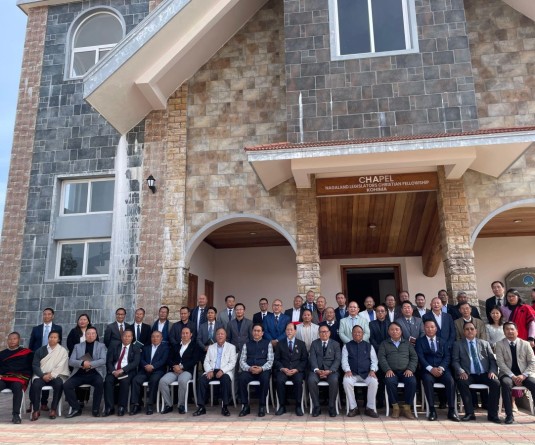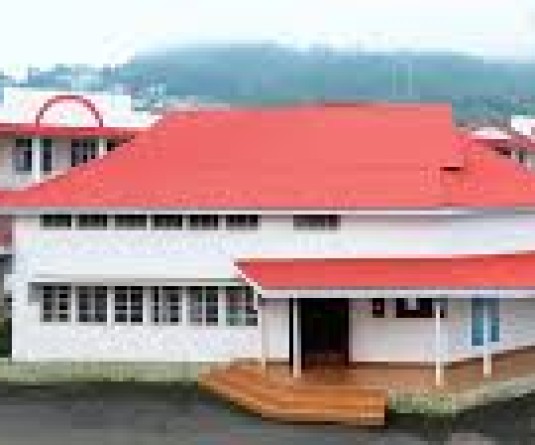ENSF officials during the press conference in Tuensang on September 14. (Morung Photo)

To shut down government schools, offices, restrict government vehicles
Morung Express News
Tuensang | September 14
The Eastern Naga Students’ Federation (ENSF) on September 14 announced the commencement of the second phase of its agitation against the Department of School Education’s (DoSE) rationalization order, saying the move has disproportionately affected schools in Eastern Nagaland.
According to a directive issued from its headquarters in Tuensang, the federation said that with effect from September 15, all its federating units have been directed to seal down all government offices, close down government schools, and restrict the movement of government-registered vehicles. The directive stated that essential services such as district administration, police, medical, power, fire and emergencies, paramilitary, and banking will be exempted. Private schools will also not be affected.
Speaking at a press conference at its office in Tuensang town the same day, ENSF leaders said the agitation, which began on September 11, had entered its fourth day and warned that unless the state government responds to their demands, protests will intensify.
The federation said the rationalization order, first issued in February and reissued on August 22, had been strongly opposed by its federating units, including the Chang Wedoshi Setshang, Konyak Students’ Union, Khiamniungan Students’ Union, Yimkhiung AkherüArihako, United Sangtam Students’ Conference, Phom Students’ Conference, and Eastern Sumi Students’ Union. Despite multiple representations, they alleged the DoSE failed to consult stakeholders.
“When the order was kept in abeyance earlier this year, we hoped it would be properly streamlined. But the new order in August had hardly any changes, and its adverse effects on our schools are severe,” ENSF President Nuheymong said.
According to figures shared by the federation, 62 teachers were affected in Longleng district, 45 in Mon, 24 in Tuensang, 15 in Shamator, and two each in Noklak and Kiphire, with 32 teachers transferred out of the region altogether. ENSF said the move has left many schools without adequate staff, including primary schools, and called for redeployment of those transferred out or appointment of relievers.
The federation also pointed to what it called repeated injustices, citing the 2025 recruitment of science and mathematics teachers, which was meant exclusively for Eastern Nagaland. “Out of 71 recruited, 12 have already been transferred out without justification. These posts were created specifically for our region,” ENSF said, demanding their immediate reinstatement.
ENSF criticized the DoSE for ignoring guidelines laid down in the Nagaland Extraordinary Gazette of November 9, 2017, which stipulates that primary teachers should not be transferred outside their linguistic areas and that transfers should only occur in November and December, not in the middle of an academic session. “The department has deliberately overlooked its own rules,” the federation alleged.
The student body also expressed resentment over an incident during their September 3 meeting with the Advisor to School Education, when he allegedly dismissed their concerns as “nonsense.” In response, ENSF issued an open letter condemning the remark, saying it was disrespectful to the student community.
The federation stressed that its agitation remains democratic but will not stop until its demands are met. “Eastern Nagaland has always been at the receiving end of such discriminatory policies. Our right to education cannot be compromised. Until justice is delivered, our agitation will continue and intensify,” ENSF leaders said, adding that the federation would not be held responsible for any fallout of the protests.






